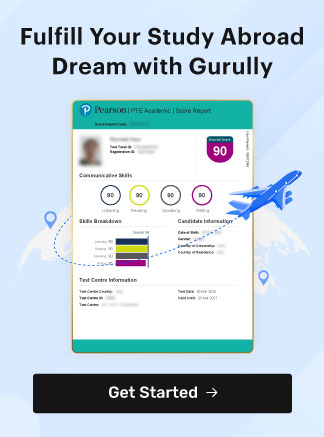Learning a new language is an exciting journey and very important if you are taking an English proficiency exam. However, mastering a language goes beyond just practicing on an app. Building and retaining a solid vocabulary is crucial to becoming proficient in English. Here are some effective strategies to help you remember actual English words and create your list of Vocabulary for Duolingo English Test.
Take Advantage of Duolingo’s Contextual Learning
Duolingo’s unique approach to language learning places words in real-world contexts, providing a more immersive and practical experience. To maximize your learning:
- Pay Attention to Context: Notice how words are used in sentences and situations.
- Write Down Examples: Create a vocabulary notebook and record new words and their sentences. This helps solidify your understanding and recall.
- Visualize and Associate: Imagine using the words in different scenarios to strengthen your memory.
How To Create a Personalized List of Vocabulary for Duolingo English Test :
The following are the ways to create Duolingo English Test Vocabulary list
Use Mnemonics for Difficult Words:
- Acronyms: Create acronyms or abbreviations from the first letters of each word in a phrase or sentence.
- Visualization: Create vivid mental images to associate words with their meanings.
Use Interactive Platform to Understand Better:
- Self-Quizzes: Create regular quizzes to test your knowledge and identify areas where you need more practice. You can use flashcards, written quizzes, or even online tools to assess your understanding.
- Digital Tools: For additional spaced repetition features, explore other language learning apps like Memorize or Quizlet. These apps offer customizable flashcards, spaced repetition algorithms, and progress-tracking tools.
- Error Analysis: Review your mistakes to understand why you struggled and adjust your learning strategies accordingly. Analyze your errors to identify patterns or common mistakes.
- Active Learning: Engage in active learning activities, such as creating your example sentences, explaining the meanings of words to others, or teaching the words to someone else.
Incorporate New Words into Daily Conversations:
- Language Exchange Partners: Find language exchange partners online or in your community to practice speaking and using new vocabulary.
- Journaling: Write in a journal using new words to solidify your understanding and practice usage.
- Language Immersion: Surround yourself with English-speaking media and environments to increase exposure and natural learning.
Group Words by Themes:
- Mind Maps: Create visual mind maps to connect related words and concepts.
- Word Associations: Identify connections between words within a theme to improve recall.
- Thematic Quizzes: Create quizzes based on specific themes to focus your learning and practice.
Engage with English Media:
- Variety of Sources: Explore different types of English media, such as news articles, documentaries, and novels, to expose yourself to diverse vocabulary.
- Active Listening: Pay close attention to the spoken language in movies, TV shows, and podcasts to catch new words and phrases.
- Subtitles: Use subtitles to help you understand unfamiliar words and phrases.
Practice Regularly and Review Often:
- Consistent Practice: Set aside a specific time each day for language learning and stick to your schedule.
- Review Intervals: Experiment with different review intervals to find what works best for your learning style.
- Progress Tracking: Keep track of your progress to stay motivated and identify areas for improvement.
Play Word Games:
- Online Games: Explore online vocabulary games and puzzles to make learning fun and engaging.
- Board Games: Play classic word games like Scrabble or Boggle with friends or family.
- Mobile Apps: Use mobile apps that offer vocabulary games and quizzes.
Join a Community of Learners:
- Online Forums: Participate in online language learning forums to connect with others and share experiences.
- Language Exchange Groups: Find language exchange partners to practice speaking and learn from others.
- Duolingo Communities: Join Duolingo’s online communities to connect with fellow learners and get support.
Essential Things You Must Not Miss About the Duolingo Exam
Test Format and Structure
- Adaptive: The test adjusts its difficulty based on your performance.
- Sections: Includes reading, writing, listening, and speaking.
- Duration: Approximately 1 hour.
- Scoring: Ranges from 10-160.
Test Day Preparation
- Equipment: Ensure a reliable computer, webcam, microphone, and internet connection.
- Environment: Find a quiet, well-lit space with minimal distractions.
- Practice: Familiarize yourself with the test format and practice similar questions.
- ID: Have a valid government-issued photo ID ready.
Important Considerations
- Multiple Attempts: You can retake the test numerous times.
- Score Validity: Results are valid for two years.
- Accepted by Many Institutions: DET is widely accepted by universities, colleges, and immigration authorities.
- Cost-Effective: DET is generally more affordable than other English proficiency tests.
Duolingo Preparation Tips For Success
- Create a Timetable: Before you begin, estimate the time you can spend on each section. This will help you pace yourself effectively.
- Use a Timer: Set a timer for each section to stay on track. This will prevent you from spending too much time on any one question.
- Prioritize: If you’re running out of time, focus on answering the questions you know first. This will ensure you earn points for the questions you’re confident about.
- Eliminate Incorrect Answers: If you can eliminate one or more incorrect answers, your chances of guessing correctly increase.
- Educated Guessing: Use your knowledge and logic to make an informed guess. Look for clues within the question or answer choices that might point to the correct answer.
- Avoid Random Guessing: While guessing can be helpful, avoid random guessing if possible. It’s better to leave a question unanswered than to make a wild guess.
- Practice Relaxation Techniques: Deep breathing, meditation, or visualization can help reduce anxiety and improve focus.
- Positive Visualization: Imagine yourself completing the test and achieving your goals.
- Take Short Breaks: If you’re feeling overwhelmed, take short breaks to rest and clear your mind.
If you are reading these tips, you must take the Duolingo English Test. You can practice on Gurully’s full-length mock test to score high in your exam. Our mock tests are expert-curated and simulate a real exam environment so that you will know the actual exam environment. You can prepare from home using our DET Exam practice software.
Conclusion:
Building a strong vocabulary for Duolingo English Test is essential for mastering English. While Duolingo provides a solid foundation, these strategies can help you remember actual English words more effectively and create a personalized vocabulary list.
You can significantly improve your language skills by leveraging contextual learning, using mnemonics, engaging in active recall, and incorporating new words into your daily life. Remember, consistency is key, so practice regularly and review often. With dedication and the right approach, you’ll be well on your way to becoming a confident and proficient English speaker.
Also Read:
- 50+ Duolingo Picture Description Examples with Sample Answers For Practice
- Speak About the Photo Duolingo – 50 Examples, Sample Answers
- Duolingo Speaking Topics: Frequently Asked Questions & Sample Answers







